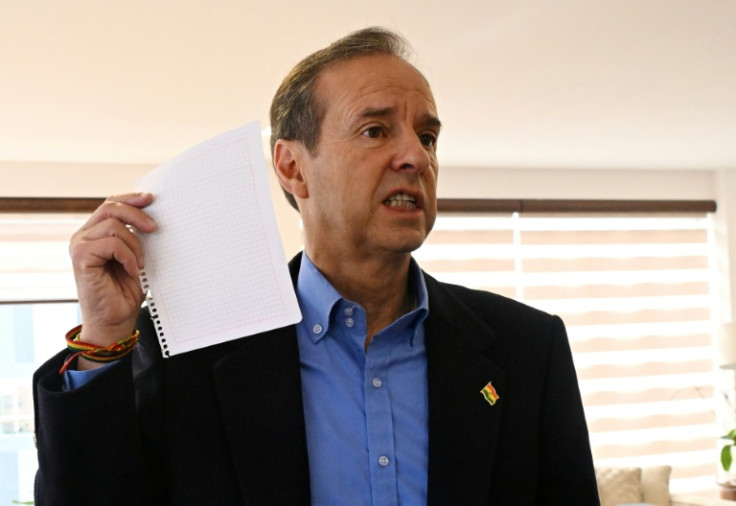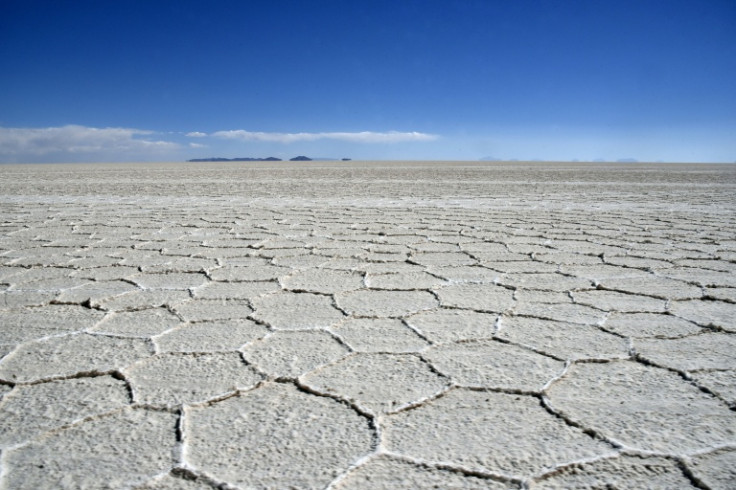Bolivia Candidate Vows To Scrap China, Russia Lithium Deals

Bolivian right-wing presidential hopeful Jorge Quiroga on Monday vowed to scrap billion-dollar lithium extraction deals struck by the outgoing government with Russia and China if elected leader.
"We don't recognize (outgoing President Luis) Arce's contracts... Let's stop them, they won't be approved," the US-educated Quiroga, who has vowed a major shake-up in Bolivia's alliances if elected president in October, told AFP in an interview.
Quiroga came second in the first round of Bolivia's August 17 presidential election, behind centre-right senator Rodrigo Paz.
The Movement Towards Socialism (MAS), in power since 2006, suffered a historic rout, with voters punishing the party founded by iconic ex-president Evo Morales over a deep economic crisis.
Quiroga and Paz now face a second-round duel for the presidency on October 19.
The fate of Bolivia's lithium deposits -- among the world's largest of the metal used in smartphone and electric vehicle batteries -- is a hot topic in the campaign.
The so-called Lithium Triangle, spanning parts of Bolivia, Chile and Argentina, is home to 60 percent of the world's lithium reserves, according to the US Geological Survey.
But in the case of Bolivia, nearly all of it is still trapped underground, at an altitude of 3,600 meters (12,000 feet) in the vast Salar de Uyuni salt flat, one of the country's top tourist attractions.
In 2023 and 2024 Arce's government signed deals with Russia's Uranium One and China's CBC, a subsidiary of battery manufacturer CATL, to extract lithium from the salt pan.
Worth a combined $2 billion, the deals were intended to help Bolivia catch up in the race to mine the mineral.
But they were blocked in Congress by infighting in the ruling party.
Indigenous groups meanwhile went to court to have them scrapped on environmental grounds.
Quiroga claimed Uranium One and CATL were selected "behind the back" of local authorities and said he would propose a new law on mineral deposits that precluded "favoritism."
Bolivia enjoyed over a decade of strong growth under Morales (2006-2019), who nationalized the gas sector and ploughed the proceeds into anti-poverty programs.
But underinvestment in exploration caused gas revenues to implode, eroding the government's foreign currency reserves and leading to acute shortages of imported fuel and other basics.
Inflation rose to 24.8 percent year-on-year in July, its highest level since at least 2008, causing voters to desert the left in droves.
Quiroga, who served briefly as president in the early 2000s, has pledged a radical overhaul of Bolivia's big-state economic model and international alliances if elected.
The 65-year-old has said he would break off ties with authoritarian leftist governments in Venezuela, Cuba and Nicaragua, pursue free trade deals with Europe and Asia and slash public spending.

© Copyright AFP {{Year}}. All rights reserved.





















